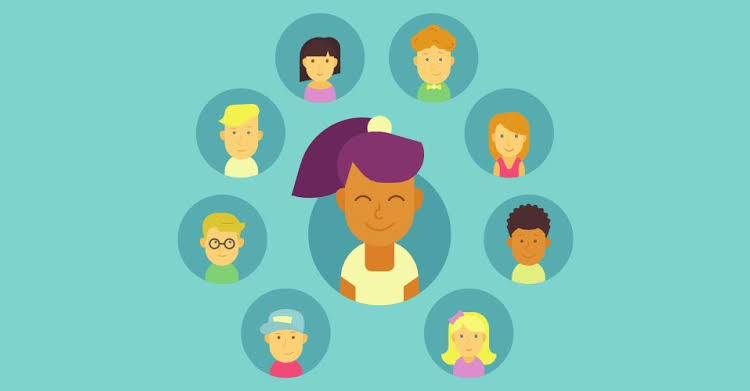“If all your mates jumped off a bridge, would you follow?” Every Kid must have heard this line at least once in their lifetime. And then, they mature into parents and find themselves saying it too. Why?
Because peer pressure can be one nightmare, that parents cannot rule. But here’s the thing about peer pressure, it doesn’t harm people always, but it can have a profoundly positive influence on each other and play crucial roles in each other’s lives.
So, What is peer pressure?

Peer pressure is basically, wishing to feel part of something that can put distress on you to act in specific ways. You could be encountering peer pressure if you’re behaving in certain ways because you want to be approved by the people you hang out with. You might be committing something you wouldn’t normally do, or aren’t doing something you wish to do, that can lead to both positive and negative impacts on your life.
Who are your peers?

Your peers are the people of your age group or near to it who have understandings and interests identical to yours, impacting each other’s preferences and behaviors.
This proves to be positive very often as its human tendency to pay attention to and learn from different people in your age group, as you become more self-sufficient.
Your peers sincerely play a tremendous role in your life. As school and other recreational activities, moves you from home, you may devote an additional amount of time with peers than you do with your parents and siblings.
Besides best friends, your peers comprise other kids you know who are the same age — like people in your class, sports team, or community. These peers also affect you by the way they dress and act, things they’re concerned with, and the opinions they exhibit.
Peer pressure can influence:
- The way you style yourself or wear your hair.
- The song you listen to.
- Your judgments you make, like about using drugs and alcohol.
- Who you propose to.
- Who you’re companions with.
- The activities you get entangled in.
The stress to act in a certain way can be:
- Direct: Someone telling you what you should do.
- Indirect: Your group of friends might do certain sports together that you’re unlike to do when are you not a part of that group.
- Self-motivated: Putting stress on oneself to fit in your friendship circles, because of certain standards the circles have set.
So from where this peer pressure comes?

One of the major sources could be the kids at school, others could be things from infancy, we’re all subjected to like music, television promotions, and other media stuff aka Pop Culture, that play a role in molding our thoughts, whether we know it or not.
Why even strong teens perish to pressure?
When you’re a teenager, You consider yourself mature enough to make your own decisions Well, science explains that’s not quite true. Science tells us that the human brain isn’t fully formulated until somewhere in the mid-20s. In fact, a teenager’s brain is only around 80% developed.
So, the areas that aren’t fully developed affect judgment. That’s the reason why most of the teens end up doing something reckless, even the 16-year-olds aren’t considered as adults, additionally, the 18-year-olds have some limited rights.
You might not hear a lot about it, but peers can have a positive impact on each other, which is an important part of life.
1. Friendship: Peers can help you understand the importance of friendship and acceptance, which can lead to building long-lasting bonds.
2. Positive examples: Peers establish plenty of promising examples for each other. Having peers who are more interested in academics can influence you to be more goal-oriented.

3. Feedback and advice: Your friends pay heed to you as well as give you critical reviews as you try out new ideas, explore belief, and discuss problems.
4. Socializing: Peer group gives you chances to try out new social skills and to understand lots of various people gives and learn how to broaden your interests.
5. Encouragement: Peers motivate you to work hard to achieve your goal, as well as empathize with you, on your breakdowns.

As a coin has two sides similarly peer pressure has it’s both positive and the negative side. Where Positive peers can encourage and assist an individual to grow the negative peer pressure can make an individual’s life unfortunate. According to an analysis, between 5% and 10% of children suffer from chronic peer relationship disorders because of peer denial and harassment – both physical and verbal.
Negative impacts on an individual
1. Forced Change In Lifestyle: Many times individuals are compelled to lead a certain kind of life routine that they are not comfortable with.
2. Loss of Individuality: When individuals try to blindly imitate the group, this can compel them to lose their choice and taste of life and make them mimic somebody who they are not as personally.

3. Alienation From The family: Individuals just don’t like to be in the company of their parents as their values act as hindrances in their way of fascination.
4. Disinterest In Studies: Continuation of the above-mentioned behavior can result in grades falling and can even affect the career of the individual.
5. Negative Behavior: The individuals feel aggressive most of the time and their bond with loved ones is majorly influenced. They also perish to have negative thoughts.
What you can do about peer pressure?
Here are some ideas to help you, pilot, during this difficult time;

- Listen to your gut: If you feel uncomfortable in a situation to get out of that as soon as possible, which will make you more self-reliant and learn more about yourself.
- Plan for possible pressure situations: Decide ahead of time — and even prepare what you’ll say and do. Learn a few tricks, to skip certain situations.
- Arrange a “bail-out” rule: Where a phrase can be used with your parents so that they can save you from an unhealthy situation without causing any trouble to the bond with your peers.
- Learn to feel comfortable saying “no”: With true friends, you never owe an explanation or apology.
- Hang with people who feel the same way you do: So choose your friends wisely.
- Come up with a lame excuse with your parents: “Are you joking? If my mom gets to know, she’d kill me, and her spies are everywhere.”
- If a situation seems hazardous: Don’t think twice to get an adult’s help.
What should you do as a parent?
- Stay involved with your kids and keep an eye on them.
- Speak when you feel something is wrong with your kid’s behavior.
- Share facts, which are true and should be strictly followed.
- Let them know about your moral grounds and disapproval.
Peer pressure is a natural process, it’s all around us, whether we want it or not. The decisions we make while choosing our peers play an important role which impacts our life negatively as well as positively. So, consider yourself a leader, and know that you have the power to make a distinction in your life by taking the right path.
Also read: Ecotourism: A Sustainable Balance Between Tourism And Ecological Conservation
Read: Sewed Vaginas: A practice called Female Genital Mutilation
To know the latest stuff, browse through our Lifestyle Section.
















